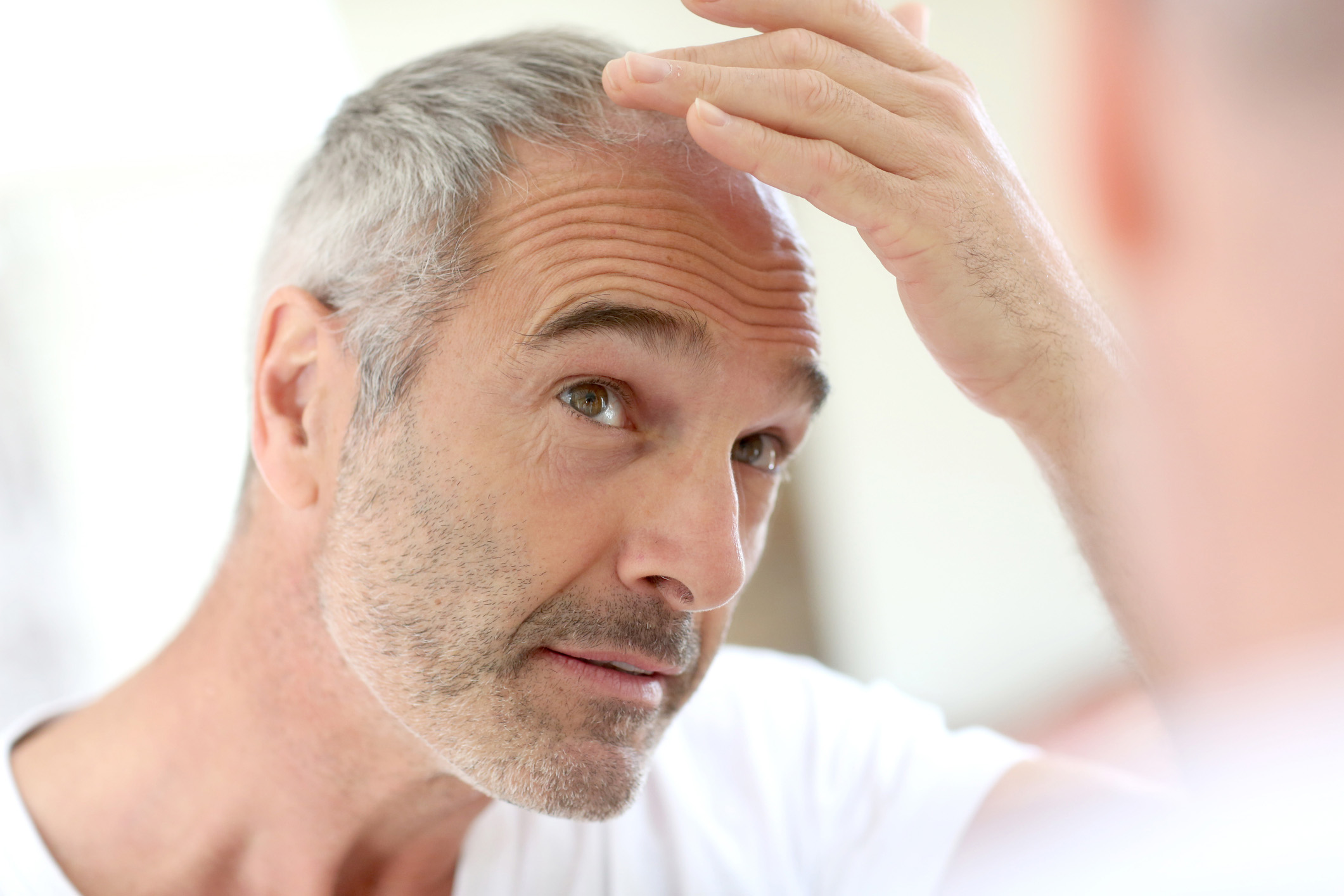
Getting a little thin up top? Or just insanely paranoid because every older male in your family is rocking the George Costanza look? Even if you sport a lustrous mane right now, it’s reassuring to know there are some solid treatment options available if things ever get dire up there. But be warned, there’s plenty of snake oil being peddled online and only a few treatments actually work. We sought advice from the nation’s foremost hair loss experts to discover which ones make the cut.
RELATED: What To Do If You’re Going Bald
1. Prescription Treatments
Prescription medication can reduce your body’s production of the hormone dihydrotestosterone (DHT), reducing future hair loss by up to 70 per cent. The key? Get in early. “If there seems to be many more hairs on the pillow, it may be time for a check-up with a doctor who knows about alopecia,” says Dr Michael K Molton, president of the Cosmetic Physicians College of Australasia (CPCA). “Mates will be the first to let you know, of course, especially when that bit at the back is starting to show through.”
2. Over-The-Counter Treatments
Topical products like Rogaine contain minoxidil, which increases blood flow to hair follicles, strengthening and thickening them. “It is like adding fertiliser to your hair; it will increase the growth phase of your hair cycle and you’ll have more hair growing at the one time on your scalp,” says Dr Paul Spano, a CPCA board member. “There are many potions on the market with lacklustre scientific support. Ask your pharmacist and do your research before using anything.”
RELATED: Everything You Need To Know About Hair Loss
3. Hair Replacement
“Hair transplants require a high degree of experience, dexterity and patience but they can be very rewarding for those men who just don’t suit a number one,” says Molton. The two most common types of procedures are FUT (follicular unit transplant) and FUE (follicular unit extraction). Both are effective, says Molton. “Modern technologies have made hair transplants so refined, even close inspection will be difficult to determine which is the original hair and which is transplant.”
4. Minimise Stress
“Men have a genetic tendency to lose a certain percentage of their hair in a certain pattern during their life,” says Spano. “This pattern hair loss is accelerated by stress (via an increase in the stress hormone cortisol in the blood) and longterm ill-health, including a consistently poor diet. Taking steroids to build muscle (often illegally) will also cause an overproduction of the hormone DHT.”
RELATED: How To Grow A Thicker Head Of Hair















